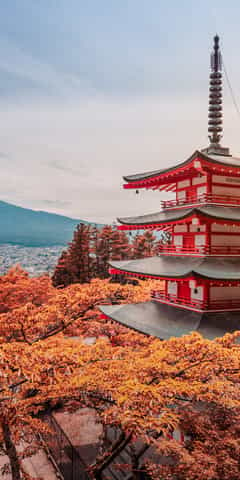
A Safari for One: How to Travel Solo with Confidence
Discover the African wild on a solo safari

To visit Japan is to enter an entirely different world to your own: sip tea in a Kyoto garden, ride the bullet train or ski in the Alps.



Jan
Feb
Mar
Apr
May
Jun
Jul
Aug
Sep
Oct
Nov
Dec
Dry Season
Across the country, winter takes hold with varying temperatures. Northern regions like Hokkaido, Tohoku, and the Japan Alps are blanketed in snow, perfect for winter sports. Meanwhile, southern and central areas have cooler, dry weather.
Dry Season
February brings with it the peak of the ski season in northern Japan. It's the perfect time to hit the slopes and carve through pristine powder snow. The entire country experiences cool, dry, and sunny days.
Dry Season
March heralds the arrival of milder weather, and the delicate plum blossoms signal the onset of spring. Towards the end of the month, the enchanting cherry blossoms start to bloom in the southern regions.
Dry Season
This is the peak viewing time for the cherry blossoms as they begin to bloom further north. The sight of cherry blossoms during this period is nothing short of breathtaking, offering a truly magical experience.
Mixed Season
May brings a delightful change in weather, with pleasantly warm and typically dry days, painting the landscape in lush greenery. While cherry blossoms grace the northern parts of Hokkaido in May, Okinawa experiences its rainy season during this time.
Wet Season
This time of year, Japan embraces a hot and humid climate, with rain being a common occurrence in many regions. However, this weather has a silver lining—the lush vegetation is at its most vibrant, and Japan's gardens come to life in all their glory.
Wet Season
July is a lively and vibrant month in Japan, with numerous festivals taking place throughout the country. While the rainy season typically ends in most regions by the first half of the month, the humidity lingers on.
Dry Season
August keeps the festival spirit alive across Japan, making it a bustling period for domestic travel, coinciding with school holidays. The weather, while generally hot and humid throughout the country, offers a more comfortable experience in Hokkaido.
Dry Season
September in Japan marks a transition from the bustling crowds of August to a more tranquil atmosphere. The skies often shine with blue hues, although the heat and humidity still linger. Nature enthusiasts can witness the captivating change of leaves.
Dry Season
October marks the onset of autumn in mainland Japan, painting the landscape in stunning shades of red and gold. As the weather gradually cools down from the summer heat, it becomes an inviting and pleasant time to visit.
Dry Season
November marks the pinnacle of autumn's beauty in mainland Japan. It's the prime time to witness the dazzling spectrum of colorful leaves adorning the landscape. Traveling during this month offers a serene experience, as the crowds have subsided.
Dry Season
December brings cool and typically dry weather to Japan, making it an appealing time to visit, especially during the first couple of weeks when the country isn't bustling with tourists. However, it's essential to be prepared for chilly temperatures.

We’re big believers in leaving a positive impact in the countries in which we operate. We’re proud to donate $50 for every booking to projects focusing on female empowerment, tech education, and conservation.
Our dream is to empower our guests to travel with a purpose.
So far, we’ve donated $78,000 to projects across Africa.